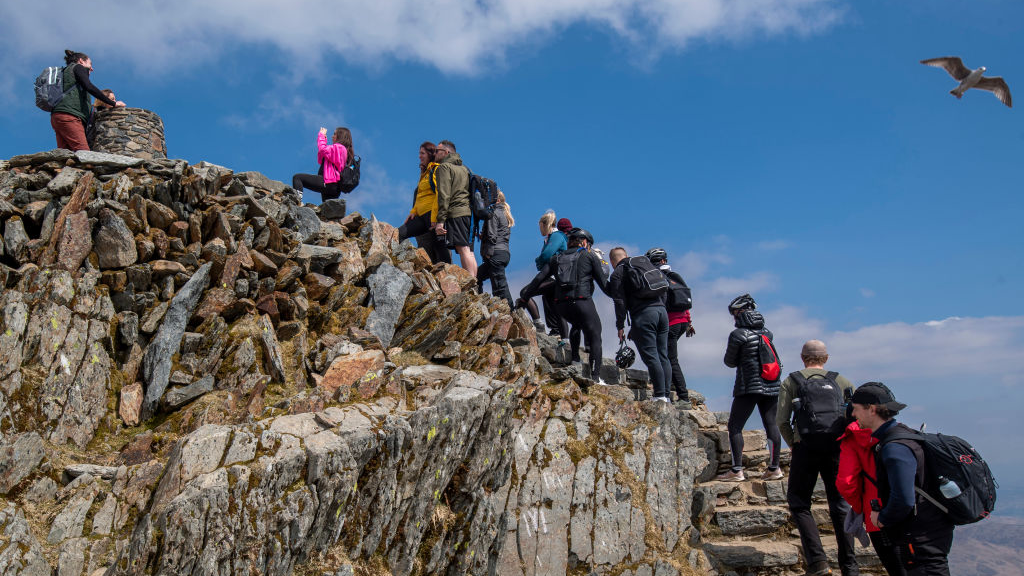Is it okay to run after eating? Well, the answer is that it depends...
Well-timed nutrition can make all the difference: our guide to what runners should eat before, during and after a workout
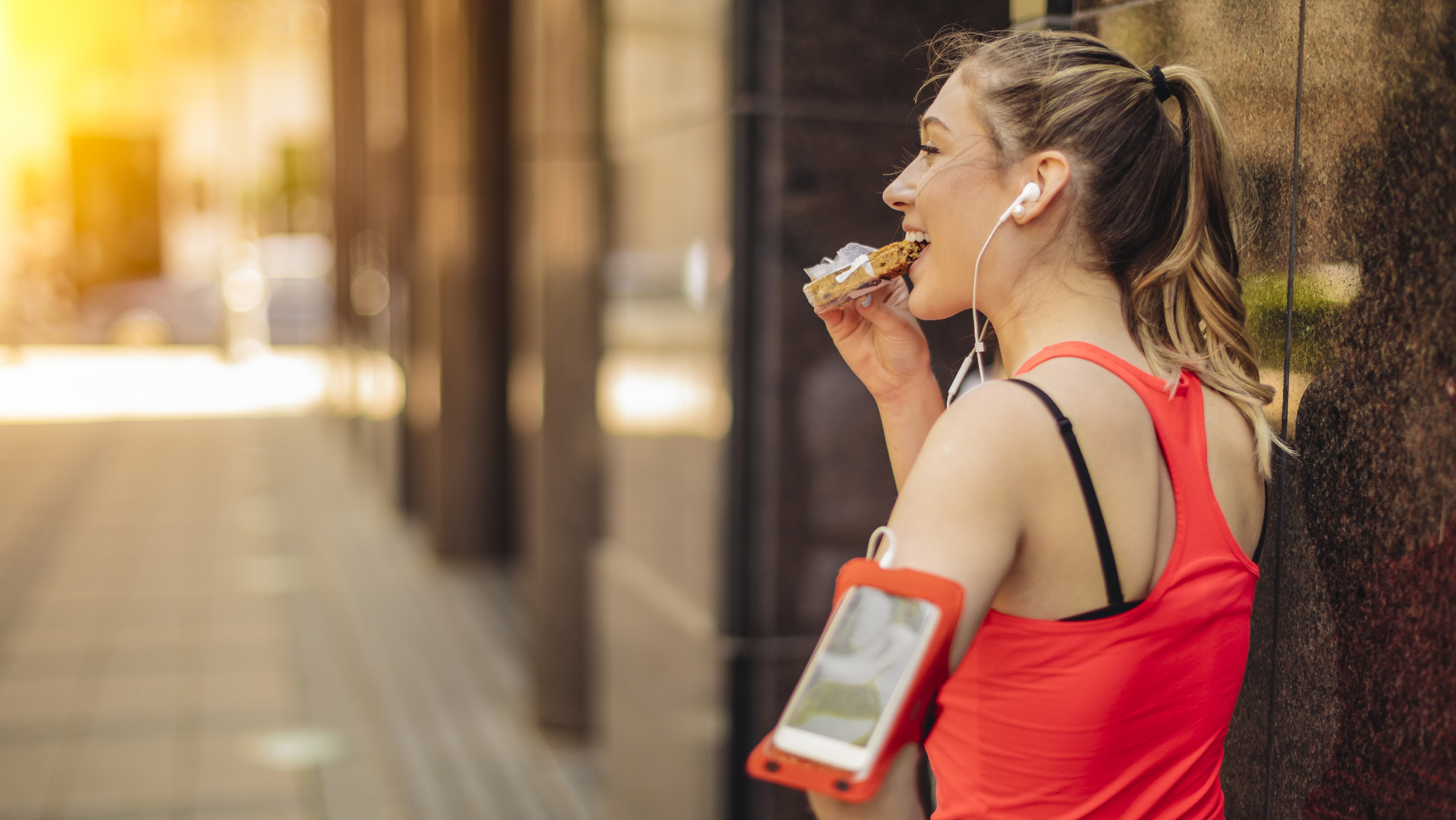
Nutrition is a crucial component of performance, whether you're casually nipping out for a quick run in your lunch break or you're taking on a mountainous ultra-marathon. Anyone who's tried to set out for any kind of run after a heavy meal will know it isn't a goer. But then, food is fuel and running on an empty stomach can be a bad idea too, particularly if you're tackling long distances.
Speak to legends of the long-distance mountain running world, people like Finlay Wild, Jack Kuenzle or Jasmin Paris, about their exploits and the topic of "... and how was your stomach?" always comes up. This is because of how an athlete's approach to nutrition can make or break their time out on the trails. The fact that even the elite are in constant conversation about this just shows how difficult the balance can be to strike.
Of course, all runners are different, but there is some general advice that will benefit those of us who enjoy lacing up our trail running shoes and heading out into the backcountry. First, as mentioned, you shouldn’t run too soon after a large meal. Meanwhile, it’s usually suggested that runners consume a snack around an hour or so before heading out for a run. Plus, what you eat after a run is very important, too. Let's get into it.
Meet the expert
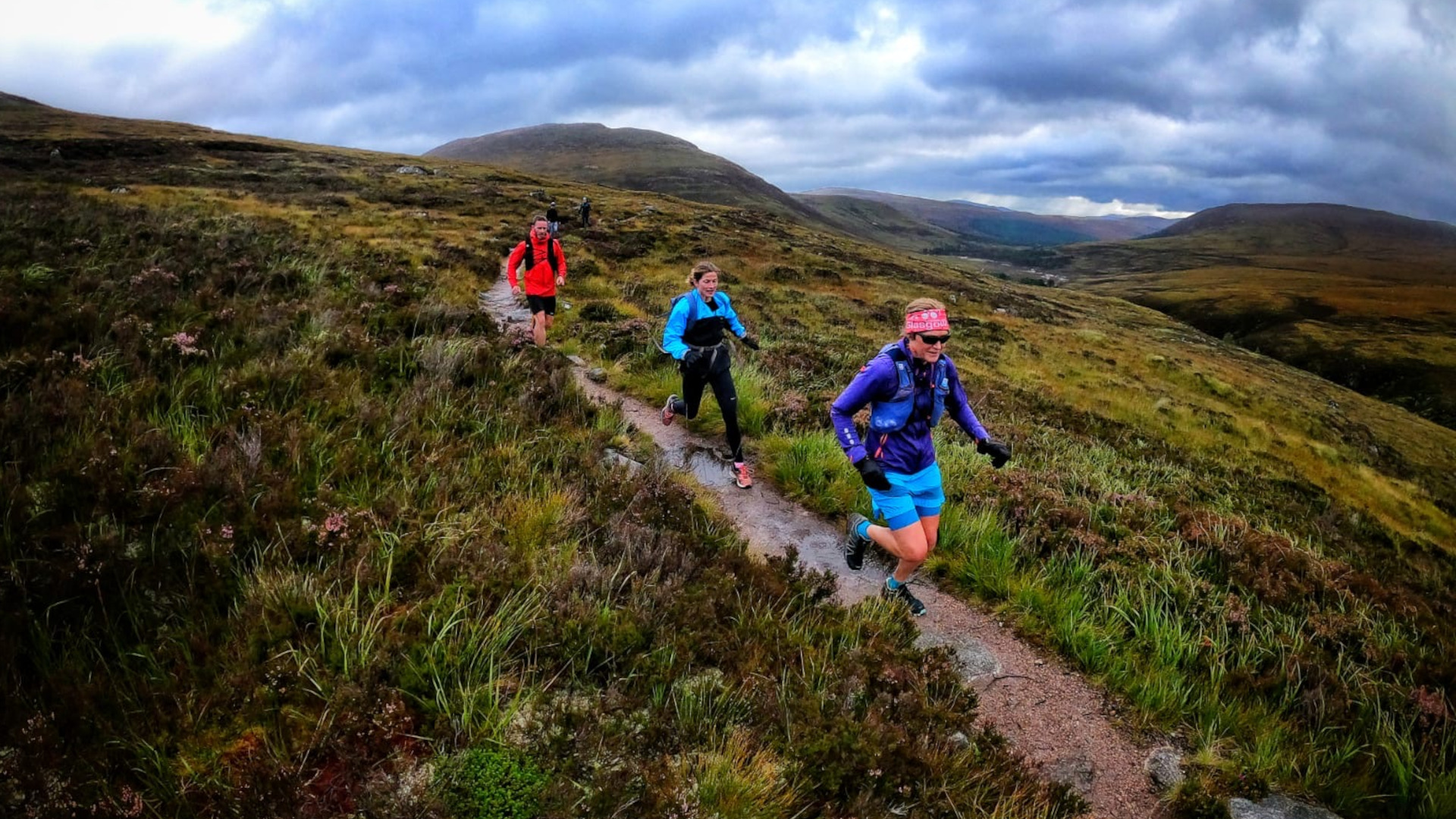
Fiona loves both the pursuit of trail running and days spent hiking in the mountains. Based in Scotland, she often heads for the Munros, sometimes in her hiking boots, other times with a hydration pack and trail running shoes, and usually with her dog.
What happens if you eat a large meal and run after?
- Issues when running after a large meal include a stitch, stomach cramps and gastrointestinal distress
- After a large meal, more blood is diverted to the body’s digestive organs
- This means there’s less blood taking oxygen to the muscles in the arms and legs
Most people need to properly fuel a run, but consuming a large meal – let’s say 600 calories or more of typically protein, carbohydrates and fat – and then running too soon afterwards usually makes for an unpleasant outing.
Common issues will likely include a stitch (in the side or even the shoulder) or stomach cramps, as well as a feeling of being generally too full to run efficiently. Many people suffer with gastrointestinal (GI) distress if they try to run with a full stomach. This is also know as “runner’s trots”.
There are several reasons why most of us can’t run with a full stomach. The process of running "jostles" food up and down in the stomach, which inevitably leads to pain and discomfort.
The body needs time to digest a meal and this digestion process requires energy. To facilitate this, more blood flow is sent to the stomach and other internal organs. This is why people can feel sleepy after a large meal.
Advnture Newsletter
All the latest inspiration, tips and guides to help you plan your next Advnture!
While more blood flows to the internal organs, there is less blood available to fuel muscles in the arms and legs. This means that running performance can be compromised if you eat too much, too soon before a run.
The exact opposite happens when we run: blood flow is redirected from internal organs to the large working muscles to provide the necessary energy for muscles to power your run.
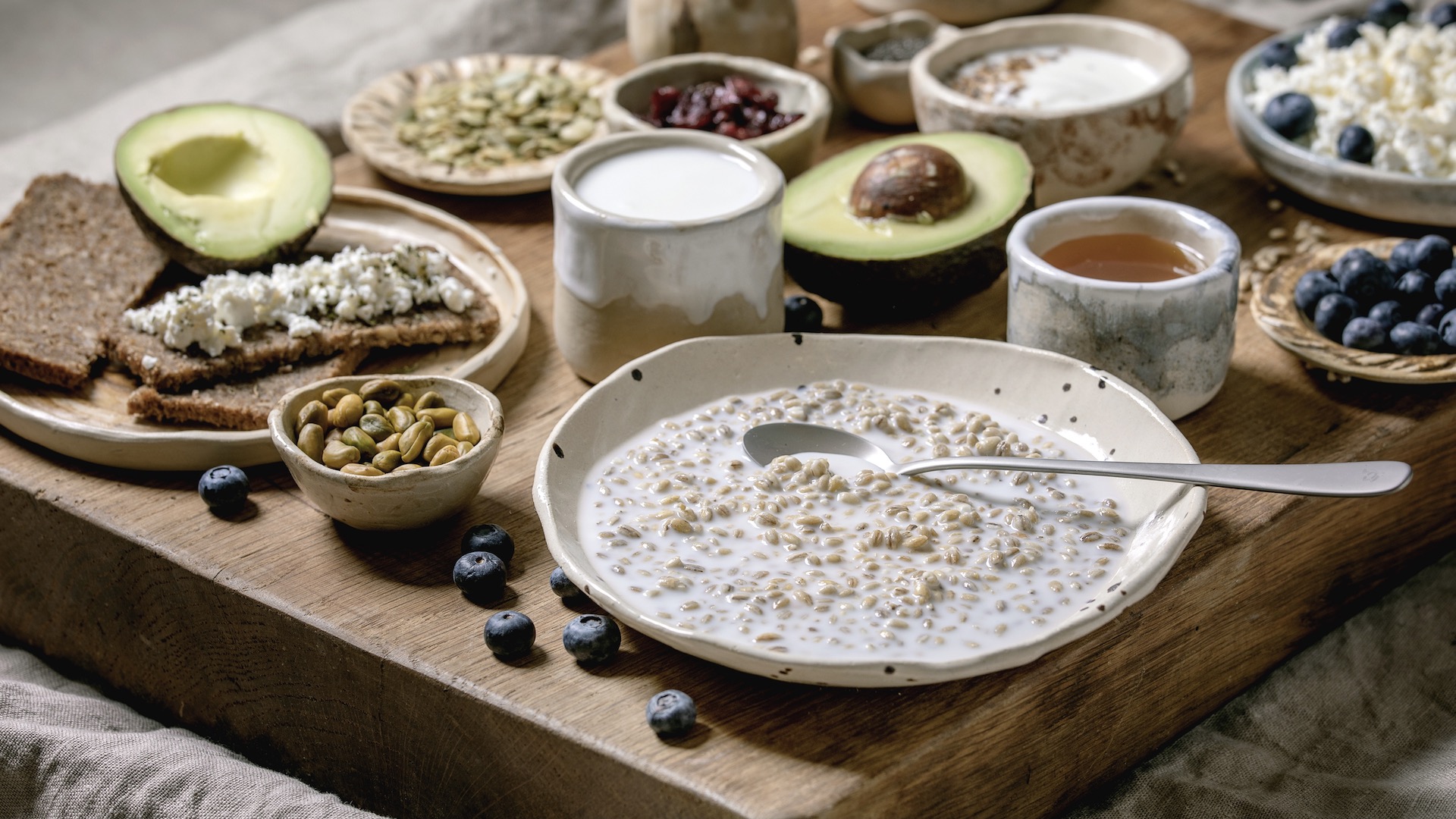
So, what should you eat before a run?
- For shorter runs, eat a balanced meal a few hours before
- For longer runs and interval training, a healthy snack an hour before helps
When it comes to what to eat before running, every runner is different – some might choose to eat a main meal, breakfast, lunch or tea, and then wait a few hours and go for a run. If the meal has enough protein, carbs and some fats, you should be fuelled enough to run up to 10k, perhaps even further. If it’s a run of moderate pace, you will most likely have enough energy for the run.
However, if you plan to run further or do a harder intervals session as part of your trail running training plan, you might benefit from an extra snack an hour or so before a run. It depends how long ago that you ate a main meal.
A snack of around 200 to 300 calories might be a small bowl of cereal, Greek yogurt and some berries, or simply a banana. Most people can run an hour after eating this kind of snack.
A piece of toast and peanut butter has more fat and protein, and might take a bit longer to digest, so this sort of snack should be consumed around 1.5 hours before a run.
All this should be tested during training so that if you have a race to enter you know exactly what works for you and what doesn’t in terms of a run after eating.
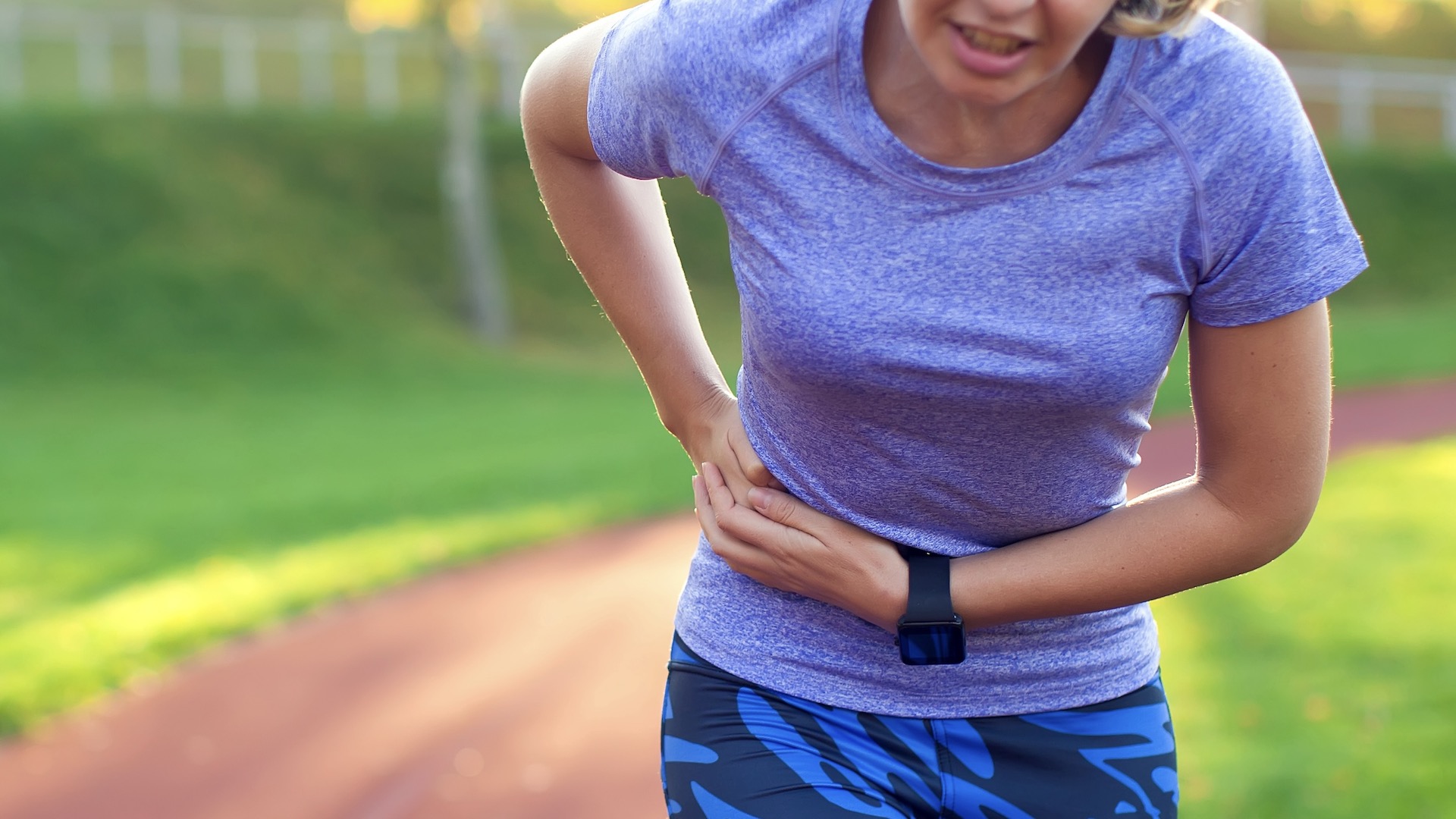
How about a run after eating nothing?
- Running on an empty stomach means the body burns fat to fuel a run
- However, it can lead to a lack of energy and poor performance
Some runners swear by “fasted running”. This would normally happen first thing in a day, before eating breakfast. The theory is that the body is more likely to use fat to fuel a run if the body is in a state of being fasted after a night’s sleep. There is a lot of debate about this and it is worth finding out more to see if it will be the right choice for you.
Certainly, some runners find this is an effective form of weight control. However, this is not for everyone and it can lead to issues with lack of energy and feeling light headed or faint. A lack of adequate fuelling can also lead to poorer performance, too.
If you want to try running without food first thing in the morning, you should build up the distances very slowly. There are runners who report they can run for hours on empty but this is not common.
What to eat during a run
- For longer runs, you need to refuel as you go
- A little and often approach with foods that are easy to digest are key
If you are heading out for a longer run, say a distance of more than a half marathon, you may need to think about what to eat while running. The body will start to lose energy at different rates, depending on metabolism, weight and how fit you are.
Running snacks to eat as you go need to be easy to consume and easy for your body to digest. Small and often is a good rule of thumb. Many people take small snacks such as energy gels, jelly sweets, cereal bars, Babybel cheese and homemade protein balls. Again, you need to see what works for you.
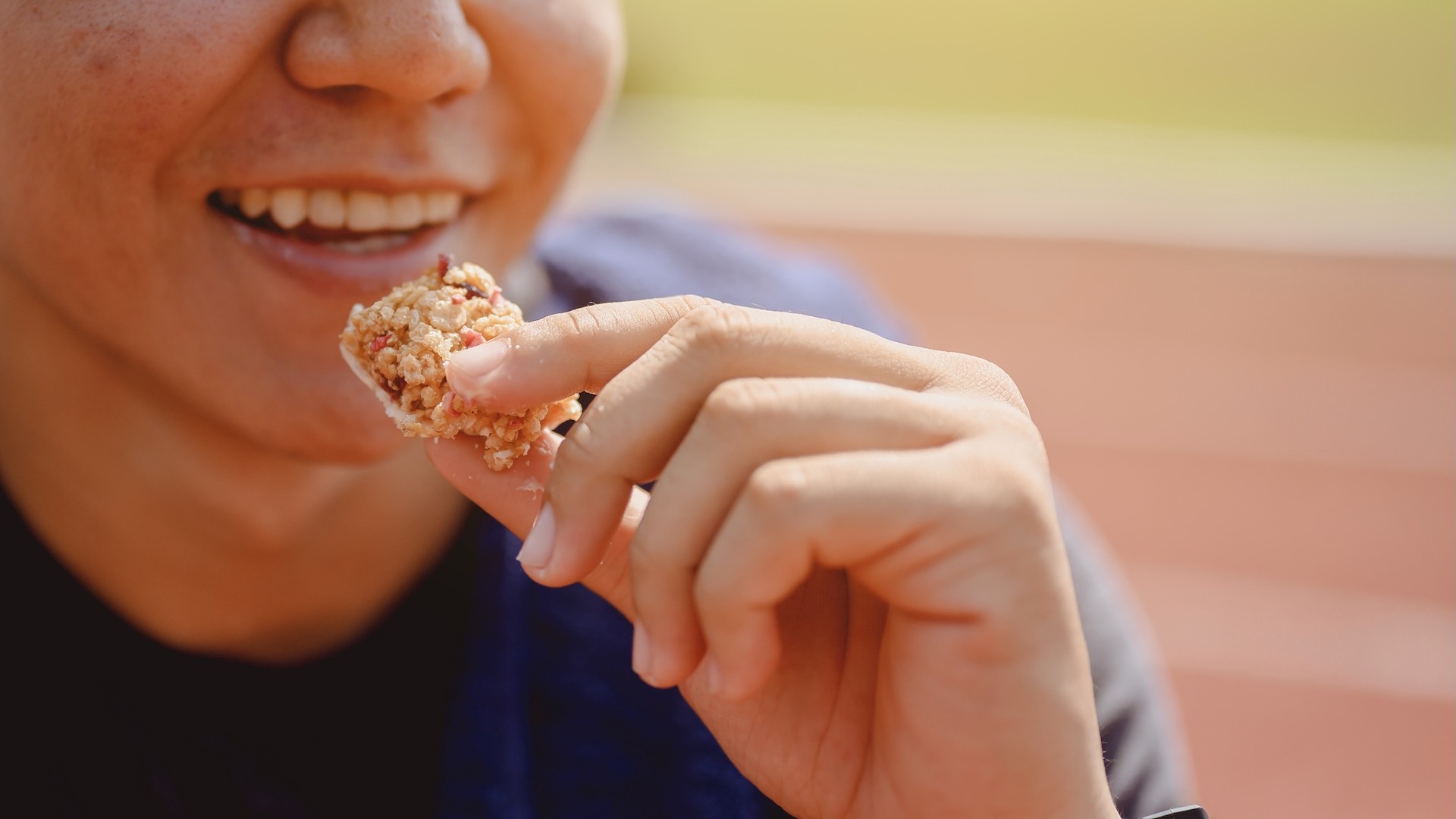
What to eat after a run
- Always eat after a run to replenish lost glycogen stores and electrolytes
- Ideally eat a 3:1 carb to protein meal 30 to 60 minutes after finishing
You should always have something to eat after a run to replenish lost glycogen stores and electrolytes. The advice is to aim for a meal or snack of a 3:1 carb-to-protein ratio 30 to 60 minutes after a run
A good example of a post-run meal would be a protein shake with fruit, a bowl of cereal, bagel with peanut butter, or a larger protein based meal, such as a tuna sandwich or an omelette.
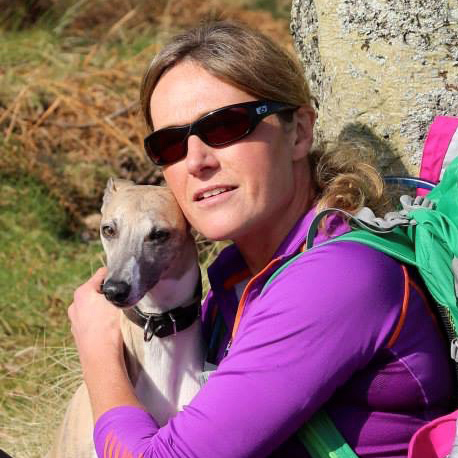
Fiona Russell is a widely published adventure journalist and blogger, better known as Fiona Outdoors. She is based in Scotland and is an all-round outdoors enthusiast with favorite activities including trail running, mountain walking, mountain biking, road cycling, triathlon and skiing (both downhill and backcountry). Aside from her own adventures, Fiona's biggest aim is to inspire others to enjoy getting outside and exploring, especially through her writing. She is also rarely seen without a running skort! Find out more at Fiona Outdoors.
